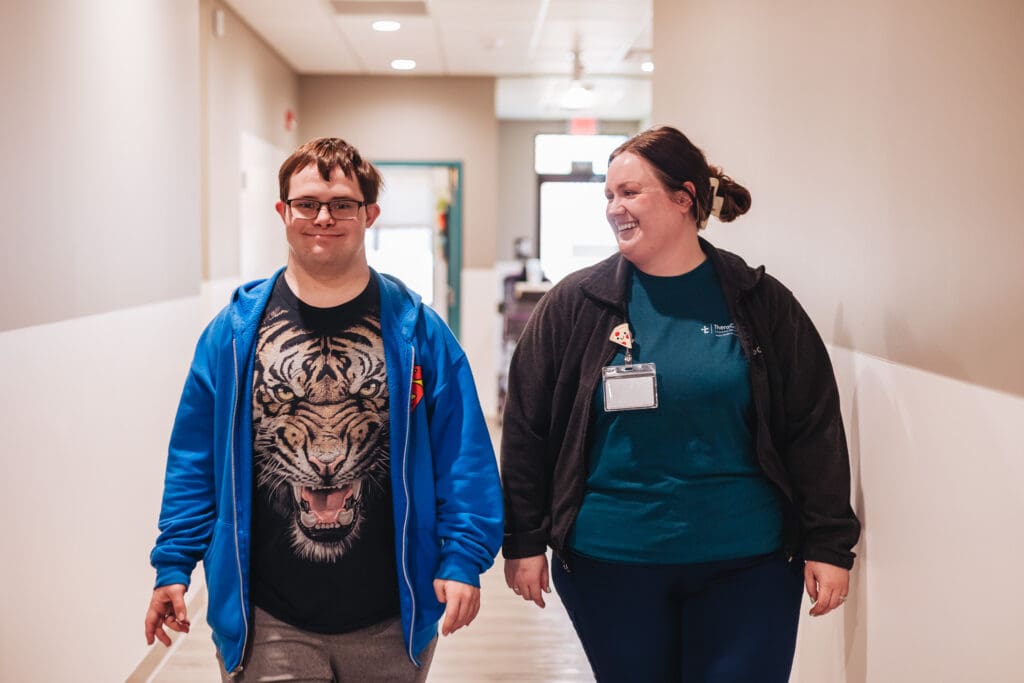
What is Applied Behavior Analysis?
ABA stands for Applied Behavior Analysis and is the science of addressing observable behavior. It produces change in behavior in individuals of all ages and abilities. ABA operates under the premise that there is a reason or function for all behavior and identifying this reason is an essential component of the behavior change process. Common reasons to seek ABA include developing social skills, increasing autonomy, improving psychological flexibility, and minimizing barriers to learning (e.g., decreasing potentially unsafe or harmful behaviors). Several authorities recognize ABA, including the American Academy of Pediatrics, the American Academy of Child and Adolescent Psychiatry, and the National Institute of Mental Health.
Psychologists most often recommend ABA for young learners with an Autism diagnosis. States have individually required ABA coverage for those with Autism at different points in time. Different companies have different requirements in addition to the Autism diagnosis. Talk to your insurance provider for additional details. There are sometimes other methods for getting funding for ABA; in Missouri, this includes funding from the Southwest Missouri Autism Project and the DMH waiver.
ABA may not be the best intervention for your child if there are underlying medical causes for behavior (e.g., a brain tumor) or an inconstant environment (e.g., moving soon).
Like many disciplines, ABA has a variety of providers with a variety of strengths. When looking for an ABA provider, families may want to ensure the provider is collecting data to ensure programming is effective, is able to provide research for the interventions being used and is willing to adapt programming if it’s not effective or does not align with family values. Additionally, current best practice is to use strengths-based language, which means focusing on positive behaviors to replace others.
Some agencies can provide more hours of support than others, which may determine if the agency is a fit for your family. Depending on a person’s needs, treatment can span several months to several years or even across the lifespan. Some agencies provide specific services based on a curriculum (e.g., PEAK), age demographic, skillset or diagnosis. Additionally, the location of services may vary. For example, if problems are most likely to occur at home, find an agency that can provide support there. One way agencies are able to provide many hours of support is with the use of Registered Behavior Technicians (RBTs). It is required that RBTs are supervised by a Board-Certified Behavior Analyst (BCBA), so it is important to have open communication with your BCBA and be able to ask questions and provide feedback when needed.
ABA utilizes a variety of interventions and principles. One of the main principles is that the interaction between a person and their environment is critical to behavior and learning. Therefore, a key focus of ABA is to change the environment in ways that will lead to practical and progressive changes in behavior. Generally, ABA services begin with a caregiver interview to determine the goals of services and which assessments to complete. Interventions should be individualized, so the BCBA will observe the individual, potentially in multiple settings, and collect data, sometimes conducting formal or standardized tests.
Treatment is then developed based on this objective data. To ensure treatment is working, the BCBA will check in with parents often, typically asking them to collect data to determine if skills are generalizing to other settings and caregivers. Part of the treatment will include parent involvement to ensure the team is on the same page and responding consistently to behaviors to promote their increase or decrease. Based on data collected in these settings, programming should be changed as needed after ensuring enough time has passed to implement interventions consistently. Often, change is small and systemic. BCBAs will break large goals into smaller steps and work on them systematically. For example, they can work on tolerating an hour-long session of work to promote success in other therapies. Contact the ABA department at the Arc of the Ozarks for more information on whether ABA is the right fit for your family!
